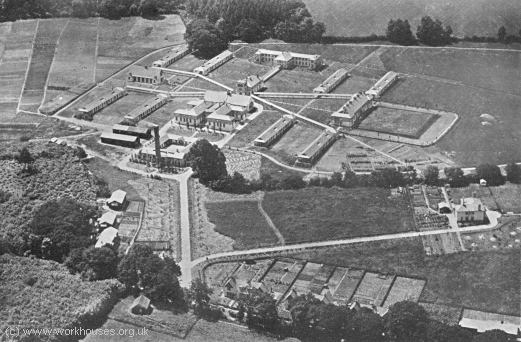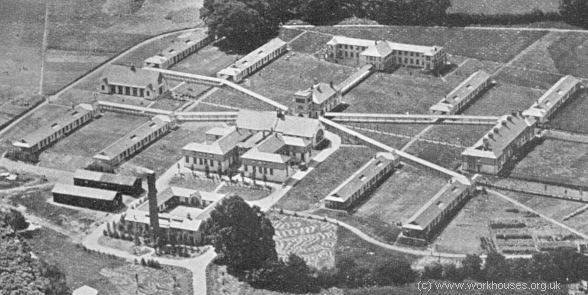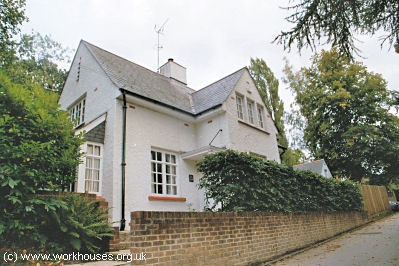King George V Sanatorium, Godalming
After the First World War, the Metropolitan Asylums Board began expanding their provision for the care of tuberculosis (TB) cases with the acquisition in 1919 of the Pinewood Sanatorium in Berkshire. Later the same year they purchased the Hendon Institution from the City of Westminster Union which reopened in January 1920 as the Colindale Hospital for advanced TB cases. On 9th May 1922, the former Empire Hotel in Lowestoft re-opened as St Lukes Hospital. A month later, on 8th June 1922, the 230-bed King George V Sanatorium opened at Hydestile near Godalming in Surrey.
The King George V, or KGV, was originally called the Highdown Sanatorium but was renamed the King George V in honour of the then monarch. The King had been invited to attend the official opening ceremony in 1924 but had been unable to do so. (It is said that the King, when asked if he would condescend to come to the opening, said 'Not on your life - visit a TB hospital - I might catch it!' — or words to that effect.)
The KGV was built at a cost of £215,000 on a site acquired in 1914 which had formed part of the Busbridge Hall Estate. It was the MAB's only purpose-built TB establishment — all the others were adaptations of existing premises. The buildings were arranged in a star formation with single-storey ward blocks arranged around a central administrative building to which they were connected by covered ways.

King George V, c.1930
© Peter Higginbotham

King George V, c.1930
© Peter Higginbotham
The KGV was, for many years, at the forefront TB research and treatment. It pioneered development of drug therapy (streptomycin) and the manufacture of iron lung equipment.
The hospital closed in 1988 and the site has been redeveloped for residential use with all the hospital buildings being demolished except for an entrance lodge.

King George V former entrance lodge, 2004
© Peter Higginbotham
Life in institutions such as the KGV is well evoked in the 1997 UK TV series "Get Well Soon" written by Ray Galton and Alan Simpson who met in 1947 in the nearby Milford TB sanatorium.
Records
Note: many repositories impose a closure period of up to 100 years for records identifying individuals. Before travelling a long distance, always check that the records you want to consult will be available.
- London Metropolitan Archives, 40 Northampton Road, London EC1R OHB. Has virtually all the surviving records for the Metropolitan Asylums Board and its instititutions. Search their catalogue at https://search.lma.gov.uk/. Holdings include general and administrative papers (1915-1948). No patient records are thought to survive.
Bibliography
- Ayers, Gwendoline, M. (1971) England's First State Hospitals and the Metropolitan Asylums Board (Wellcome Institute of the History of Medicine, London).
- Powell, Sir Allan (1930) The Metropolitan Asylums Board and its Work, 1867-1930. (MAB, London)
Links
- The KGV Archive contains a history and many pictures of the KGV.
Unless otherwise indicated, this page () is copyright Peter Higginbotham. Contents may not be reproduced without permission.


